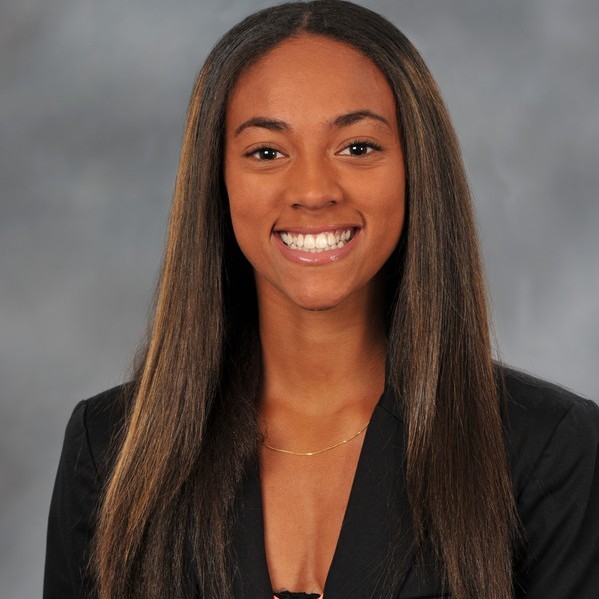Erica Evans is one of six team members receiving the 2023 Corporate Partnership Award. Partnering with Honeywell, Evans and team are developing multiple diagnostics for sickle cell disease via a multi-pronged, multi-year partnership.
Can you introduce yourself?
I’m Erica and I’m a research assistant at Dr. Vivien Sheehan’s lab. I’ve been working on the microfluidics projects with her and Dr. Wilbur Lam at Georgia Tech.
For about two years, we’d had a prototype for a sickle cell disease, red blood cell adhesion device. My main priority was to get that device to a state where we could reliably distinguish between healthy red blood cells and sickle red blood cells from patients with sickle cell disease – and I was able to accomplish that. We’ve shown our work at the American Society of Hematology, we’re in the process of writing a publication, and now we’re working with Honeywell to actually gear this technology toward clinical use.
What initially drew you to your field?
I have always been interested in healthcare, but I wasn’t quite sure about which approach would suit my talents and skills. And this opportunity presented itself to me when I interviewed at Emory after attending Coastal Carolina University in Myrtle Beach.

Erica Evans
I was really intrigued by the idea of being able to tinker. When I spoke with the lab manager, she explained some of the responsibilities: optimizing, developing, and trying different strategies and techniques. So that was pretty enticing to me.
I joined in 2022, and it’s 2024. And I’m still enjoying it, and I’m still learning. Microfluidics is very finicky.
There’s a lot of technique that goes into getting the devices to work properly. So, I never stopped trying and never stopped learning every single day. I never know if the devices are going to work well, or if I’m going to run into some stumbling blocks. It’s quite a journey every single day. It’s fun.
Can you tell us a little bit more about the technology you received the award for?
That is our partnership with Honeywell. And it’s quite special because there’s a lot of momentum right now in the sickle cell space with two gene therapies being approved. It’s really important to have these partnerships with academia and industry so that we can work together to develop technologies to monitor patients’ conditions so we can properly match them with treatment.
We’re working with Honeywell to develop this adhesion device and a few more panels of devices to create really robust biomarkers so that we can properly characterize a patient’s condition.
What are some next steps for this technology?
Some next steps would be trying to get the technology used in the clinic. One of the programs that Dr. Lam has started is the ADJUST (Advancement of Diagnostics for a Just Society) Center. We’re working closely with Dr. Evelyn Williams, who also worked on this project to develop the adhesion device and bring it to the clinic, so that we can start to see a higher throughput of samples being processed and analyzed. So now we can figure out, okay, what clinical parameters does our device correlate well with? Can we use this to predict pain events? How can we use this technology in the clinic in a way that we can create a better picture of a patient’s state?
What did you enjoy about winning the award? What does it mean for your lab and/or your family?
I think it’s really important to have these partnerships between academia and industry companies to pool our resources and knowledge for these new gene therapies — not just for sickle cell disease. I think it’s important to work together to develop technologies that can really push forward the field of diagnostics and therapy development.
I think it’s more about forming these relationships and leveraging the strengths of academia as well as the strengths of an industry partner like Honeywell so that we can develop very robust, dynamic tools to guide patient care.
I think this award just shows that when you work collaboratively, a lot can be accomplished. I think this is the beginning of hopefully many collaborations that can produce technology to benefit patients in the future.
If you were to summarize all of your emotions in one word, what would that word be?
Excited.
Join us for Emory OTT’s 18th Annual Celebration of Technology and Innovation on Thursday, March 21! RSVP here.
– Angela Chan